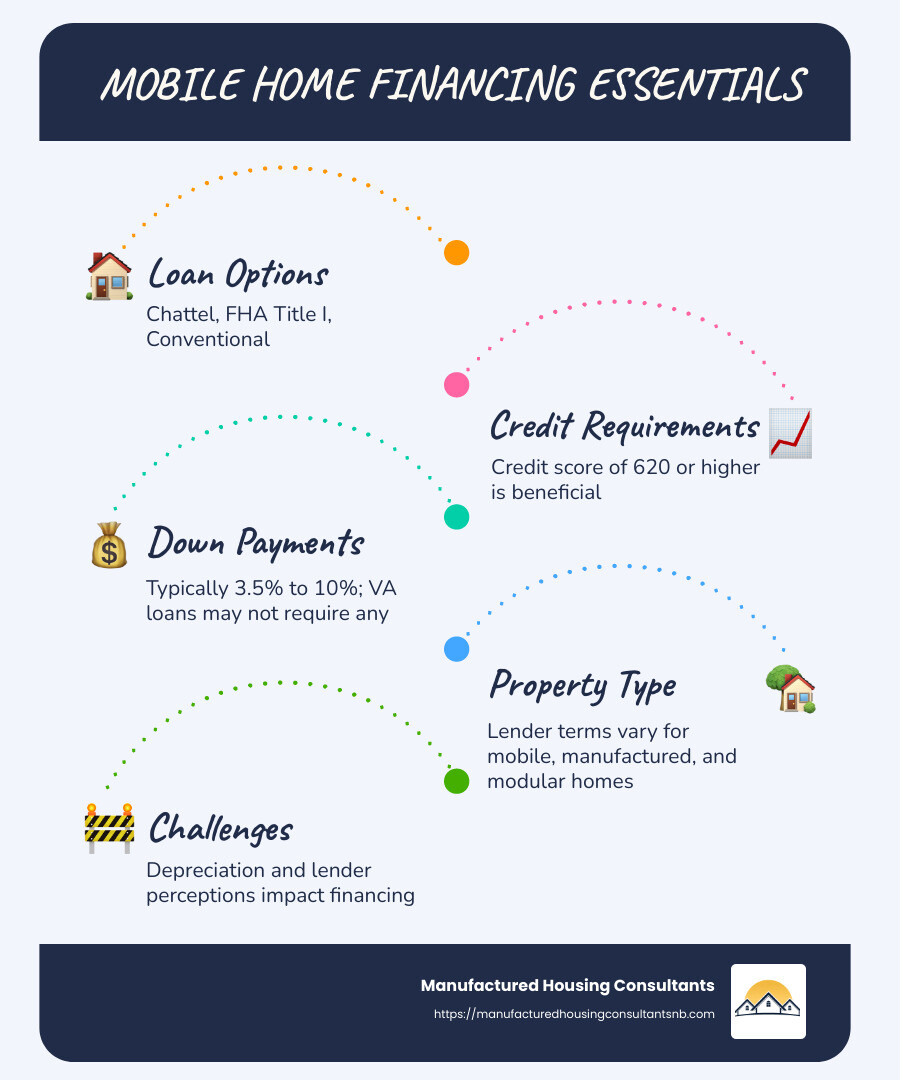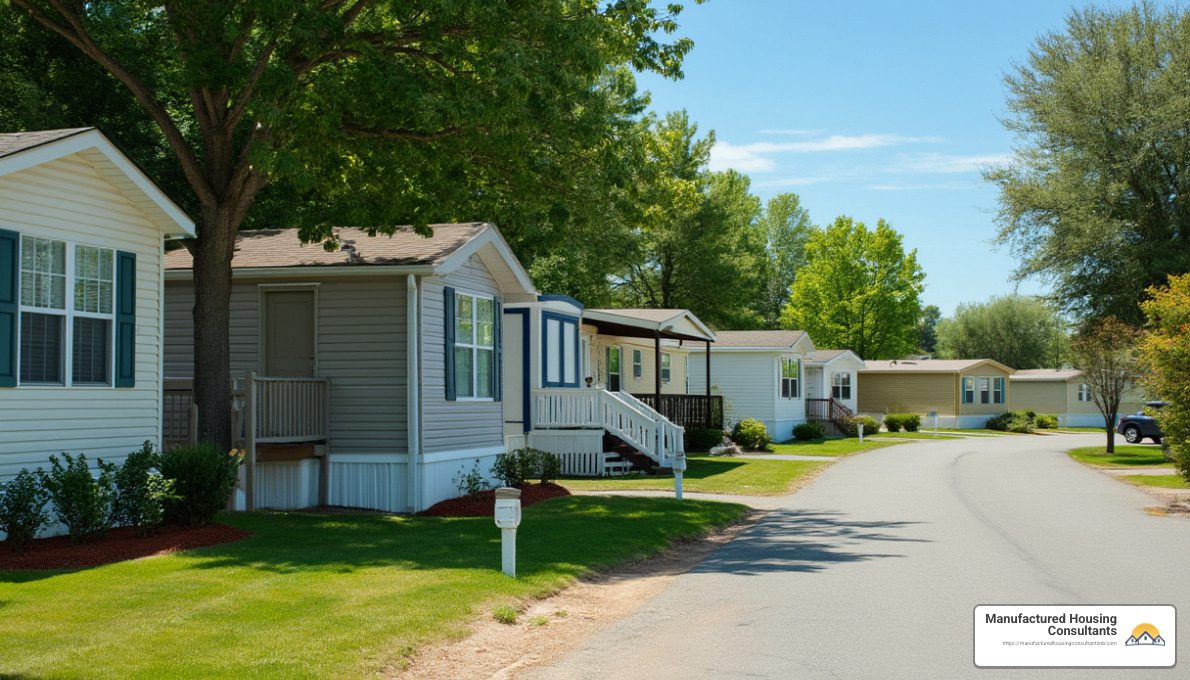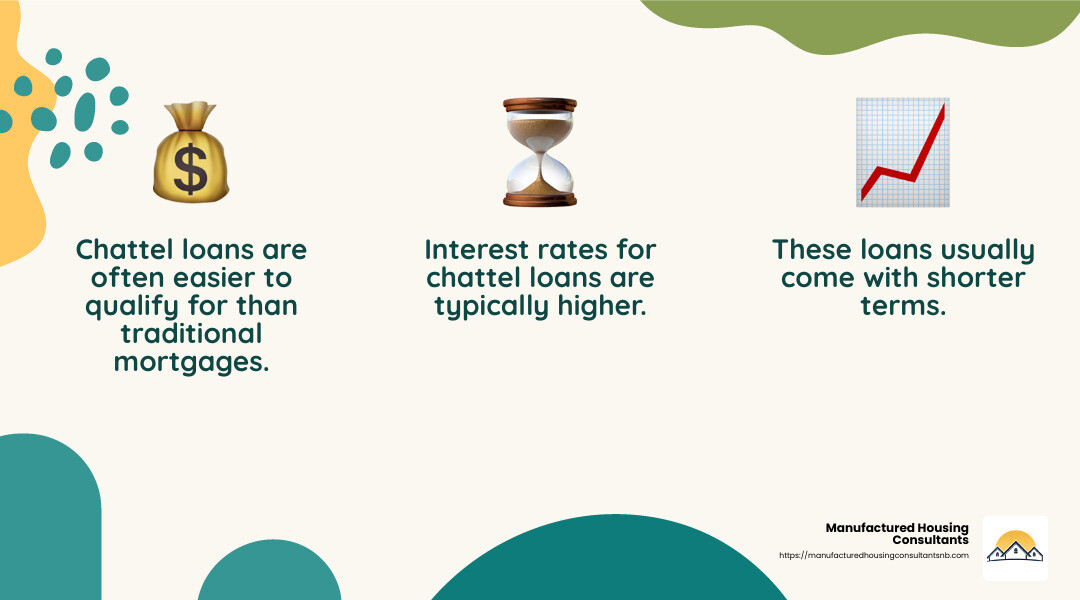Mobile Home Financing 101: Everything You Need to Know
Unlock the essentials of mobile home financing. Discover loans, eligibility, and rates to make informed decisions today!
Navigating Mobile Home Financing
Mobile home financing is often misunderstood, yet it’s a key resource for those seeking affordable homeownership like Sarah, who’s navigating the Texan housing market. For many, mobile homes offer a pathway to owning a property without the hefty price tag of traditional houses. However, financing these homes can come with its unique set of challenges.
If you’re considering financing a mobile home, here are the essentials you need to know:
- Flexible Loan Options: Choose from chattel loans, FHA Title I loans, or conventional loans.
- Credit Requirements: Generally, a credit score of 620 or higher is beneficial, but lower scores might be accepted with higher interest rates.
- Down Payments: While some programs like VA loans might not require a down payment, others often range between 3.5% to 10% of the purchase price.
- Property Type Matters: Lenders often differentiate between mobile, manufactured, and modular homes, impacting potential loan terms.
Despite the affordability, obtaining financing is not without its problems. Mobile homes might face problems with traditional lenders due to their classification and perceived depreciation over time. However, with various loan types available, understanding which one suits your needs best is essential.

Understanding Mobile Home Financing
When it comes to financing a mobile home, understanding the different loan options can help you make informed decisions. Let’s explore the main types: chattel loans, traditional mortgages, and FHA loans.
Chattel Loans
Chattel loans are designed for movable properties, like mobile homes, that are not permanently attached to the land. They are often easier to qualify for compared to traditional mortgages. However, they usually have shorter terms and higher interest rates. This type of loan is suitable if you plan to lease the land or move your home in the future.
Traditional Mortgages
While many traditional lenders are hesitant to offer mortgages for mobile homes, it’s still possible to obtain one. Traditional mortgages usually come with lower interest rates and longer terms compared to chattel loans. To qualify, your mobile home often needs to be permanently affixed to the land, which means it must be considered real estate rather than personal property.
FHA Loans
The Federal Housing Administration (FHA) offers loans specifically for mobile homes. These loans are available through programs like Title I and Title II:
-
Title I Loans: These are for purchasing the home itself or the home and the land. They are accessible to borrowers with lower credit scores and require smaller down payments.
-
Title II Loans: Designed for buyers who are purchasing both the home and the land, these loans offer terms similar to traditional mortgages.
FHA loans are a popular choice due to their flexibility and lower credit score requirements. However, not all lenders offer these loans, so it might take some searching to find one that does.
In conclusion, understanding these financing options is crucial for potential mobile home buyers. Whether you choose a chattel loan, a traditional mortgage, or an FHA loan, each has its own benefits and challenges. Consider your long-term plans and financial situation to decide which option is best for you.
Types of Loans for Mobile Homes
When you’re looking to finance a mobile home, it’s important to know the different loan types available. Here’s a breakdown of the main options, including chattel loans, FHA Title I loans, conventional loans, and cash-out refinancing.
Chattel Loans
Chattel loans are popular for financing mobile homes, especially when the home is not permanently affixed to land. These loans are easier to qualify for but often come with higher interest rates and shorter terms than traditional mortgages. They’re a good fit if you plan to lease the land or if your home is considered personal property rather than real estate.
FHA Title I Loans
FHA Title I loans are insured by the Federal Housing Administration and designed for mobile home buyers. These loans can be used to finance the home itself or both the home and the land. They are accessible to borrowers with lower credit scores, and they require smaller down payments. This makes them an attractive option for many buyers.
Conventional Loans
Conventional loans for mobile homes are available but can be harder to secure. To qualify, your mobile home often needs to be on a permanent foundation and classified as real estate. These loans offer lower interest rates and longer terms compared to chattel loans. They also come with protections like foreclosure laws and lower closing costs.
Cash-Out Refinancing
Cash-out refinancing allows you to tap into your home’s equity by taking out a new loan that exceeds your current mortgage balance. This option can provide you with extra cash for other expenses. However, it’s only available if your mobile home is considered real estate and you have built up enough equity.
Each of these loan types has its own benefits and challenges. Choosing the right one depends on your financial situation and future plans. Whether you’re considering a chattel loan for flexibility, an FHA Title I loan for accessibility, a conventional loan for its favorable terms, or cash-out refinancing for financial leverage, understanding your options is key to making a smart decision.
Eligibility and Requirements
When it comes to mobile home financing, understanding the eligibility and requirements is crucial. Let’s break down the key factors: credit score, down payment, loan-to-value ratio, and property classification.
Credit Score
Your credit score plays a big role in determining your eligibility for mobile home loans. For FHA loans, a minimum score of 500 is required if you can afford a 10% down payment. If your score is at least 580, you might qualify for a lower down payment of 3.5%. For conventional loans, aim for a score of at least 620 to increase your chances of approval.
Down Payment
The down payment is the upfront cost you need to pay when purchasing your mobile home. For FHA loans, the minimum down payment can be as low as 3.5%, but this depends on your credit score. Conventional loans typically require a down payment of at least 5%. However, a larger down payment can help you secure a better interest rate and lower monthly payments.
Loan-to-Value Ratio
The loan-to-value (LTV) ratio is the amount of your loan compared to the appraised value of the home. For mobile homes, lenders usually look for an LTV ratio of up to 90%. This means you can borrow up to 90% of the home’s value, but you’ll need to cover the remaining 10% with your down payment. A lower LTV ratio can make you a more attractive borrower, potentially leading to better loan terms.
Property Classification
How your mobile home is classified affects your financing options. If your home is permanently affixed to land, it can be classified as real estate. This opens up more options like conventional mortgages and potentially lower interest rates. If it’s not permanently attached, it might be considered personal property, making chattel loans a more suitable option.
Understanding these eligibility factors can help you steer mobile home financing more effectively. By knowing what lenders look for, you can better prepare and increase your chances of securing the right loan for your needs.
Financing Options and Rates
When it comes to mobile home financing, understanding your options and the associated rates is key to making an informed decision. Let’s explore the various financing options and what you can expect in terms of interest rates and loan terms.
Interest Rates
Interest rates for mobile home loans can vary widely based on the type of loan and your creditworthiness. For conventional mortgages, rates tend to be lower, starting around 5.99% for well-qualified borrowers. However, if you opt for a chattel loan, which is common for mobile homes not permanently affixed to land, expect higher rates ranging from 8% to 14%. It’s crucial to shop around and compare rates from different lenders to secure the best deal.
Loan Terms
Loan terms for mobile homes also differ based on the financing option you choose. Conventional loans typically offer terms similar to those for site-built homes, ranging from 15 to 30 years. On the other hand, chattel loans often have shorter terms, sometimes as short as 23 years. Shorter terms mean higher monthly payments but less interest paid over the life of the loan. Consider what works best for your financial situation when deciding on a loan term.
SECU
State Employees’ Credit Union (SECU) offers specific loan options for manufactured homes with a maximum term of 20 years. One of the advantages of financing through SECU is the absence of application or credit report fees. However, an origination fee of 1% of the loan amount, capped at $2,500, is charged at closing. SECU aims to provide affordable financing options, making it a viable choice for many borrowers.
Fannie Mae
Fannie Mae provides several financing options for mobile homes, including the Standard MH and MH Advantage programs. These programs are designed to offer competitive rates and terms for different types of manufactured homes. For example, the MH Advantage program requires a minimum down payment of just 3%, which is lower than many conventional loans. Additionally, mortgage insurance can be canceled once you reach 20% equity, potentially saving you money over the life of the loan.
By exploring these financing options and understanding the associated rates and terms, you can make a more informed decision that aligns with your financial goals. Whether you choose a conventional mortgage, a chattel loan, or explore options with SECU or Fannie Mae, knowing the details will help you secure the best possible financing for your mobile home.
Frequently Asked Questions about Mobile Home Financing
Is it harder to get a mortgage for a mobile home?
Yes, getting a mortgage for a mobile home can be more challenging compared to traditional homes. One reason is depreciation. Mobile homes often depreciate in value over time, unlike site-built homes that typically appreciate. This depreciation makes lenders perceive mobile homes as riskier investments.
Another factor is lender perception. Many lenders view mobile homes as less stable investments due to their mobility and the potential for quicker wear and tear. As a result, fewer lenders offer mortgages for mobile homes, and those that do may have stricter requirements.
What credit score do I need to finance a mobile home?
The credit score you need for mobile home financing varies depending on the type of loan you seek. For an FHA loan, you might qualify with a minimum score of 500 if you can afford a 10% down payment. If you’re aiming for a lower down payment of 3.5%, you’ll need a score of at least 580.
For conventional loans or chattel loans, the minimum credit score is generally higher, often around 620. It’s important to check your credit score and understand how it impacts your loan options before applying.
Can you get an FHA loan for a mobile home?
Yes, you can get an FHA loan for a mobile home. The FHA offers the Title I program, which is designed to help buyers finance mobile or manufactured homes. This program covers the home itself, the land it sits on, or both.
To qualify for an FHA Title I loan, you must meet certain eligibility criteria. This includes using the home as your primary residence and ensuring it meets specific safety and installation standards. Additionally, while FHA loans often require lower down payments and are available to those with lower credit scores, you’ll need to find a lender that participates in the Title I program.
Understanding these aspects can help you steer the complexities of mobile home financing and choose the best option for your needs. Whether you’re considering an FHA loan or exploring other financing avenues, knowing the requirements and lender perceptions can guide you toward successful homeownership.
Conclusion
At Manufactured Housing Consultants, we understand that finding affordable housing can be a challenge, especially with the rising costs of traditional homes. That’s why we’re committed to offering a wide selection of mobile and manufactured homes at the guaranteed lowest prices. Our goal is to make homeownership accessible to everyone, and we provide a variety of financing options to help you achieve this dream.
Whether you’re looking to purchase a manufactured home unit, a lot, or both, we can guide you through the financing process. We offer options like FHA Title I loans, which are designed to assist with financing mobile homes, the land they sit on, or a combination of both. These loans often come with lower down payment requirements and are accessible to those with lower credit scores, making them an excellent choice for first-time buyers.
In addition to FHA loans, we can help you explore other funding avenues, such as chattel loans and conventional loans, depending on your needs and financial situation. Our team of experts is here to help you understand the requirements and benefits of each option, ensuring you find the best fit for your circumstances.
Buying a mobile home doesn’t have to be complicated. With our expertise and dedication to customer service, we aim to simplify the process, offering support every step of the way. If you’re ready to take the next step toward affordable homeownership, visit us in New Braunfels, Texas, or one of our other locations. Let us help you find the perfect home at a price you can afford.



